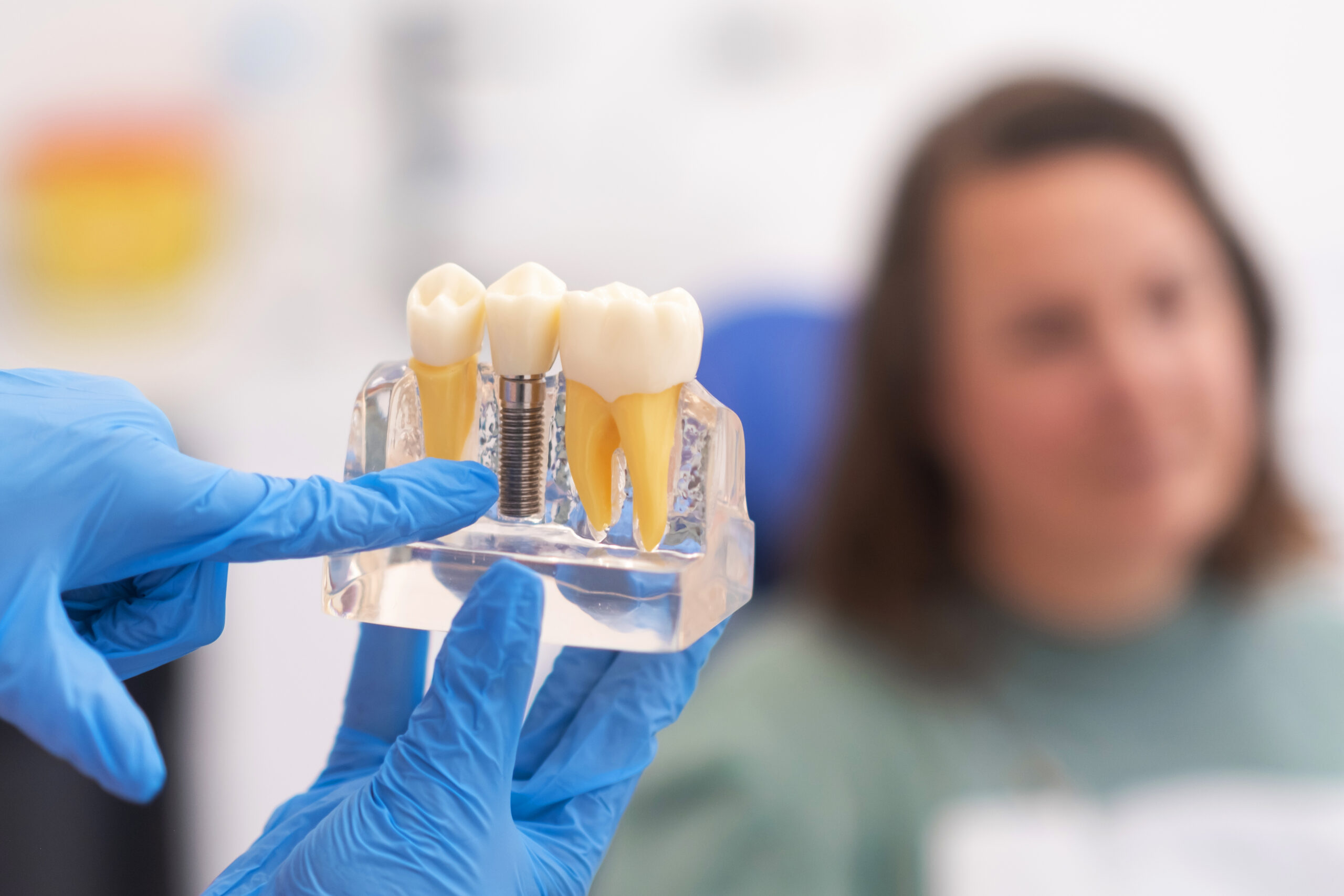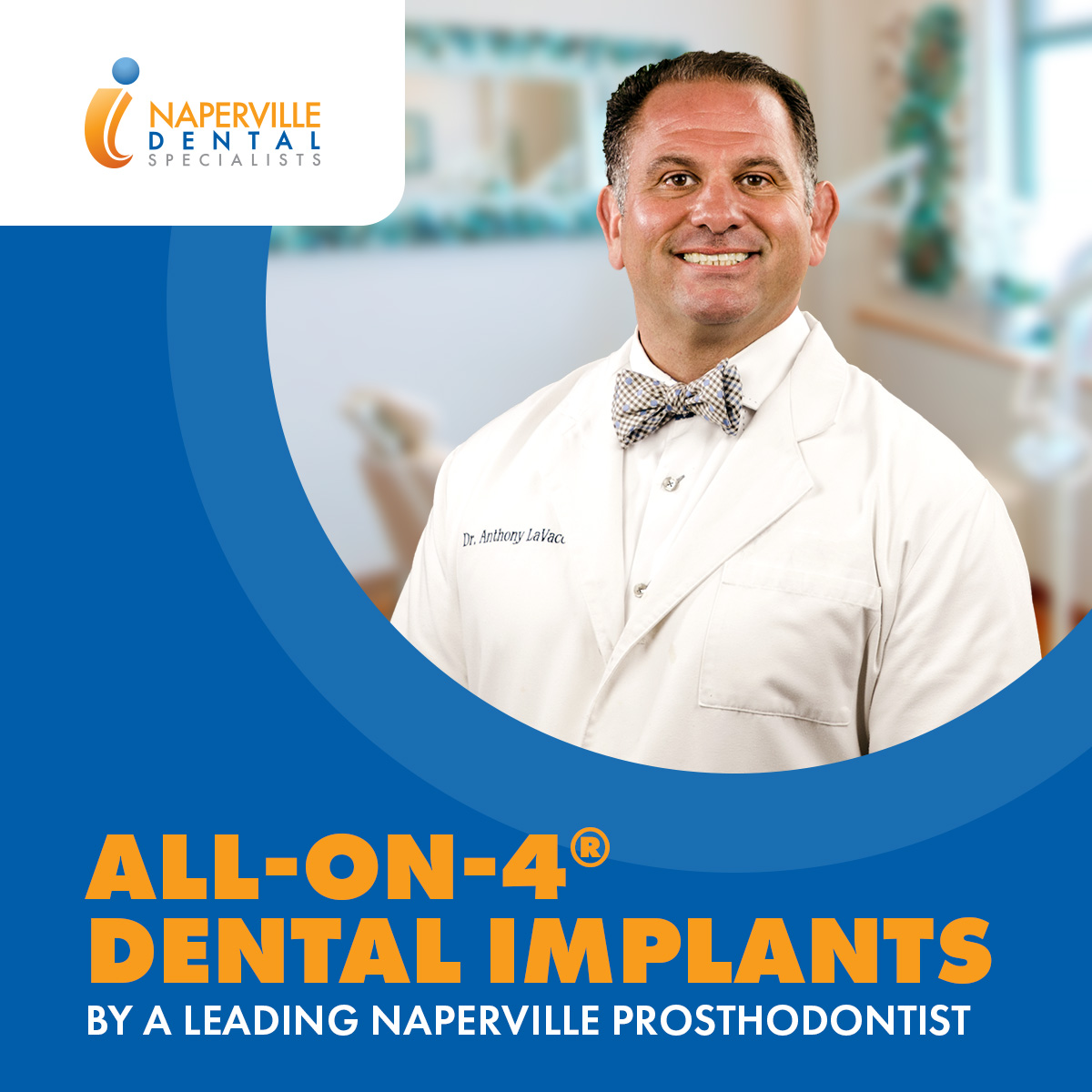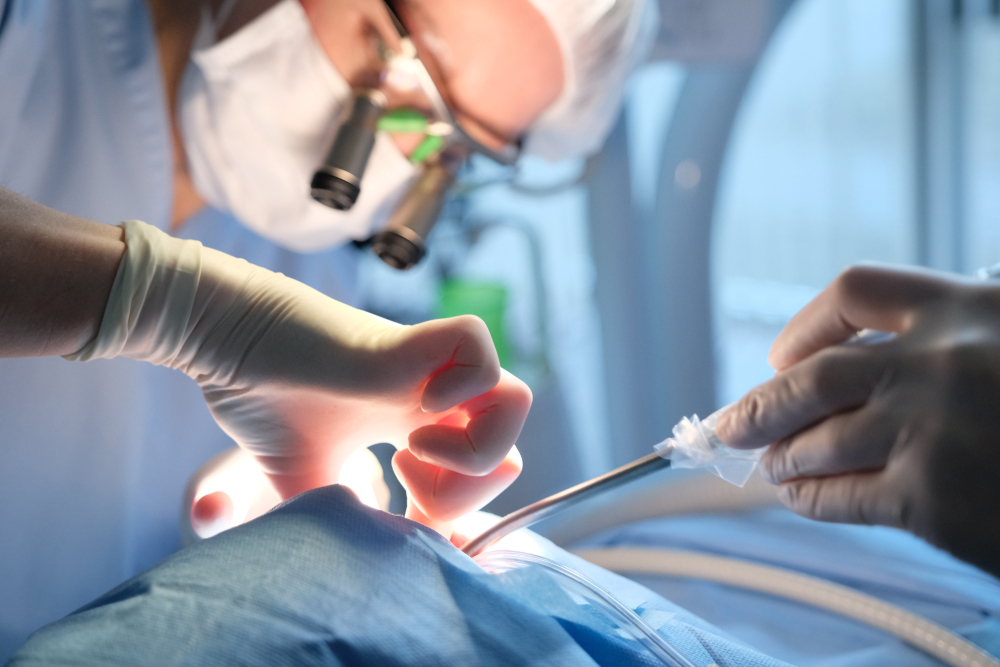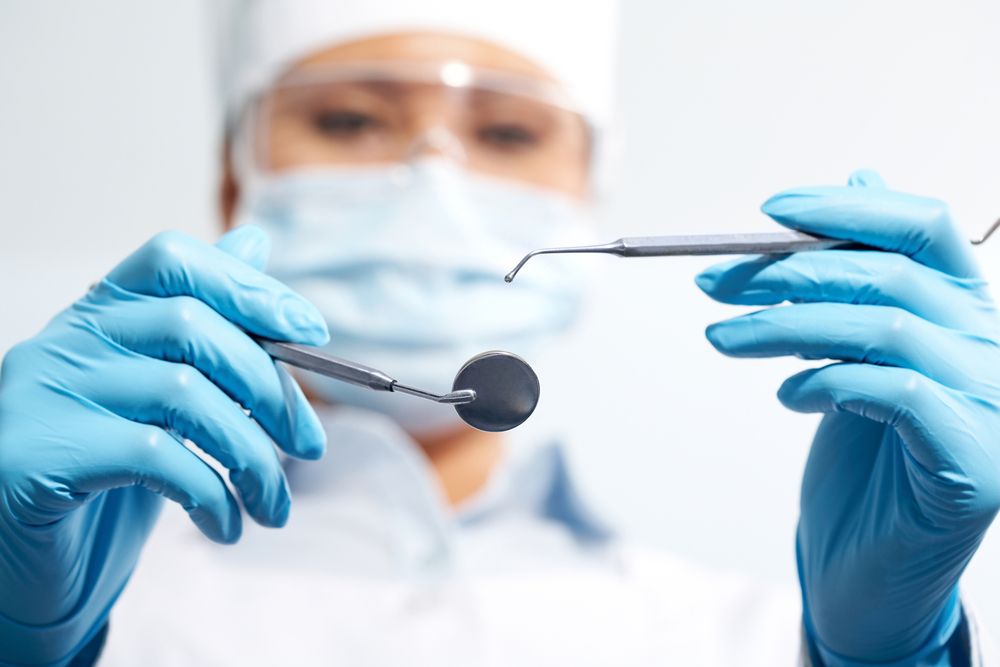
Dental implants are the gold standard for replacing missing teeth. Because the implants integrate with the jawbone, there’s no slipping and sliding like you get with dentures. Dental implants are also the only tooth replacement option that prevents bone loss and, in turn, facial collapse. Plus, with proper care, they can last a lifetime.
So why doesn’t everyone just get dental implants? Well, some patients worry about how to afford dental implants because of a perception that the price is high. While, yes, dental implants cost more than removable dentures and bridgework, they last much longer and help maintain optimal oral health. For these reasons, they’re actually surprisingly cost-effective over time.
While this is true for even conventional dental implants, at Naperville Dental Specialists, we offer options that help you enjoy the benefits of implants at a lower price point. In fact, here are four types of dental implants that won’t break the bank.
Snap-On Dentures: Budget-Friendly and Effective
Snap-on dentures are an economical alternative to traditional implants and a more comfortable, functional alternative to removable dentures. Our American board-certified prosthodontist Dr. Anthony LaVacca uses only two standard implants. Once the jawbone has sufficiently healed around the implants, the dentures are snapped into place.
Because your snap-on dentures cost is per implant, it’s more affordable than the typical four to eight implants needed for implant overdentures. Treatment makes chewing, speaking and smiling feel more natural. Most importantly, this technique alleviates undue pressure on the gums and jawbone, mitigating the risk of jawbone shrinkage and facial collapse.
Mini Implants: Lower Cost and Quicker Recovery
Mini implants are another excellent solution. How much do mini dental implants cost? Thanks to their smaller diameter, they cost about half as much as standard dental implants. Dr. LaVacca places the mini implants into your jawbone. After a brief healing period, your dentures are permanently fastened to the implants.
Though your dentures won’t feel quite as secure as they would with full-sized implants, it will be a substantial improvement compared to removable dentures. Additionally, mini implant surgery is simpler, resulting in a faster recovery.
Implant Overdentures: Stability and Value
Implant overdentures, also called implant-supported dentures, offer a nice balance of stability and affordability. They’re more secure than mini implants and snap-on dentures, but not as expensive as replacing all of your missing teeth with dental implants, because, again, the cost is per implant.
During dental implant surgery, Dr. LaVacca will place between two and eight implants with ball-shaped attachments into your jawbone. Depending on the situation, he may also use a retainer bar with the implants for better stability.
Once your jawbone heals, he’ll secure custom, permanent dentures to the implants. Your dentures will stay in place and you’ll care for them like you would natural teeth. They won’t slide around, fall out or look unnatural. The implants will also help to preserve the integrity of your jawbone.
All-On-4® Dental Implants: Robust and High-Quality
All-on-4 dental implants cost more than snap-on dentures or mini dental implants. Yet, the technique offers a comprehensive solution for patients with diminished jawbone density. In lieu of using bone grafts to regenerate lost bone and placing implants for an entire arch of missing teeth, the All-On-4 method involves inserting four strategically angled implants in the back of the jawbone where there is more density.
This angular placement offers sturdy support for full dentures. Your new smile will look natural, feel great and provide outstanding function at a significantly lower price than bone grafting and individual implants for each missing tooth.
How do I find affordable dentures near me?
Don’t just type “affordable dentures near me” into Google and choose the first option. For the best results, visit an American board-certified prosthodontist like Dr. Anthony LaVacca for any type of dental implant procedure.
After dental school, prosthodontists complete three additional years of in-depth specialty training focused on diagnosing and treating deficient or missing teeth and orofacial structures. This means they have the experience and knowledge to safely and effectively restore smiles with a range of treatments, including all types of dental implants.
If you’re in the Chicagoland area, schedule a consultation with Naperville implant dentist Dr. LaVacca. He’ll provide expert guidance on the best affordable dental implants for your unique smile.











































